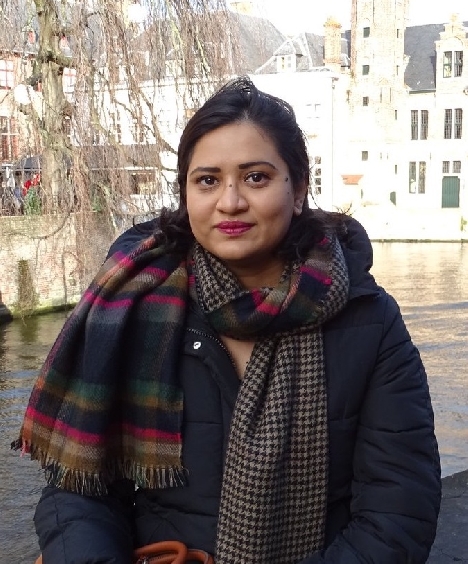Join us for a talk by Marzana Kamal on the intersectionality of migration, patriarchy and religion in Bangladesh through an exploration of male labour migration and it's impact on the wives that get left behind in Bangladesh.
Talk Abstract
Studies at the intersection of gender and labour migration have largely focused on female migrants. But in many developing countries, labour migrants remain predominantly male and their wives stay behind. Using qualitative research methods, I examine the impacts of mens migration on the everyday life and gender relations of their left-behind wives in two districts of Bangladesh (Bogura and Munshiganj). My analysis suggests that, the village wives lead strictly circumscribed lives under the supervision of their in-laws. The concept of respectable woman vodro meye further curbs village wives physical autonomy. Whereas, changes in patrilocal settings in the migrant households place fewer restrictions on sub-urban wives physical mobility. Religious clothing such as Burkha is practised by both the village and suburban wives. Burkha facilitates suburban wives physical mobility, but it does not serve that purpose for the village wives. Data from the interviews with migrant men suggests that village men promote female modesty, madrassa education and early marriages for girls. I find that the identity formation of modern Muslim wives, in the milieu of mens migration, does not convert to greater physical autonomy or decision-making power for the women. My thesis highlights the policy importance of considering not only the economic advantages of labour migration (remittances) but also its potential social costs which affect men and women differently.
Speaker Bio
Marzana Kamal is a final year PhD student in Sociology and Social Policy at Bangor University, UK. Prior to the PhD, she completed her MA in Gender and International Development from University of Warwick. For her MA thesis, she used discourse analysis to examine the factors hindering social integration of Muslim women in the UK.
_____________________
Event is FREE and OPEN to the public.
Established in 2013 with a generous gift from the Subir & Malini Chowdhury Foundation, The Subir & Malini Chowdhury Center for Bangladesh Studies at UC Berkeley champions the study of Bangladeshs cultures, peoples and history. The first of its kind in the US, the Centers mission is to create an innovative model combining research, scholarships, the promotion of art and culture, and the building of ties between institutions in Bangladesh and the University of California.
Like us on FACEBOOK
PARKING INFORMATION
Please note that parking in not always easily available in Berkeley. Take public transportation if possible or arrive early to secure your spot.
DIRECTIONS
We are located at 10 Stephens Hall on UC Berkeley's campus. Please click this Google Maps Link and enter your point of departure.

